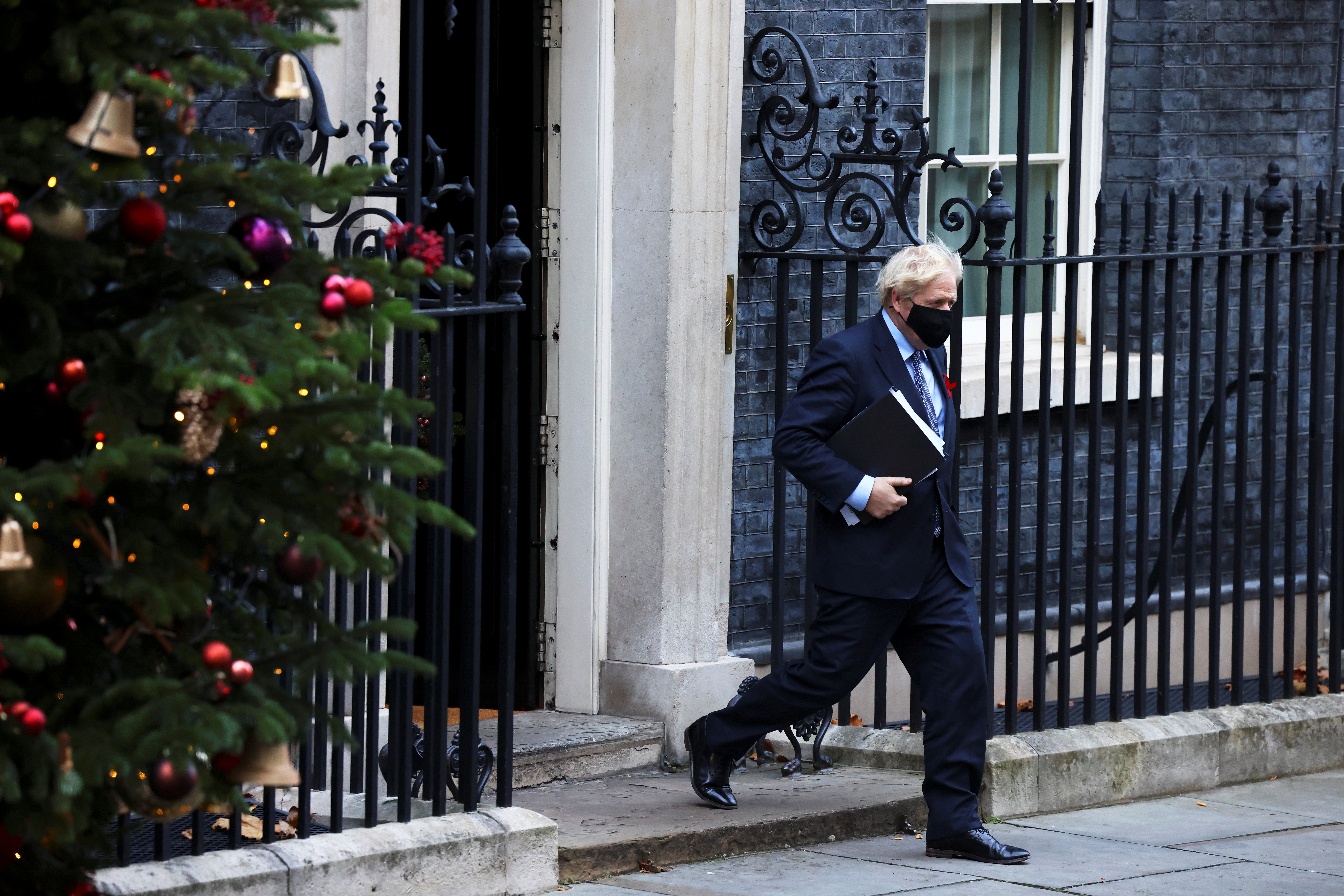What will happen to immigration in the UK after Brexit?
Priti Patel has outlined government’s ‘points-based immigration system’

Your support helps us to tell the story
From reproductive rights to climate change to Big Tech, The Independent is on the ground when the story is developing. Whether it's investigating the financials of Elon Musk's pro-Trump PAC or producing our latest documentary, 'The A Word', which shines a light on the American women fighting for reproductive rights, we know how important it is to parse out the facts from the messaging.
At such a critical moment in US history, we need reporters on the ground. Your donation allows us to keep sending journalists to speak to both sides of the story.
The Independent is trusted by Americans across the entire political spectrum. And unlike many other quality news outlets, we choose not to lock Americans out of our reporting and analysis with paywalls. We believe quality journalism should be available to everyone, paid for by those who can afford it.
Your support makes all the difference.When the Brexit transition period expires on 31 December, Britain’s immigration system will be dramatically overhauled.
Perhaps the single most significant move will be the immediate end to the free movement of people between the UK and the European Union – concluding decades of citizens being able to travel freely to work and study without barriers.
Despite formally leaving the bloc in January, immigration rules have been broadly the same and free movement – a fundamental principle of the union – has remained in force during the 11-month transition period.
This will change at 11pm on 31 December, whether or not Britain manages to strike a trading agreement with Brussels.
The Conservatives’ 2019 manifesto promised the new immigration system would give “us real control over who is coming in and out” but made no mention of reducing overall numbers to the tens of thousands – a promise successive Tory prime ministers failed to deliver on.
Under the new rules, however, there will be a greater emphasis on contentious definitions of “skilled” versus “low skilled” migrants. Boris Johnson’s government will aim to attract the former while reducing the latter, the election manifesto promised.
It will form part of what Priti Patel, the home secretary, and government ministers refer to as the “firmer but fairer” points-based immigration system, introducing a “single, global” scheme for both EU and non-EU nationals.
For EU citizens living in the UK before the Brexit transition period expires, the government has pledged to protect their rights, and the Home Office has urged all to apply digitally for the Settlement Scheme to continue living and working in Britain after June 2021. Irish citizens are exempt and will not need to apply for permission to remain in the UK.
But concerns have been raised, with critics warning the government it faces another Windrush-style scandal amid fears people will be locked out of homes, jobs and healthcare by technical problems.
The “Access Denied” campaign – launched by EU citizens’ campaign group the3million – has also called on ministers to provide physical proof of right to remain to prevent technical glitches in the new system resulting in people falling through the cracks.
For EU nationals wishing to move to the UK after the Brexit transition period expires, however, they along with non-EU nationals, will be subject to the new points-based immigrations system.
Under the new rules, the vast majority of foreign nationals aiming to work, live and study in the UK will have to apply and pay online for a visa from 1 January 2021.
The government guidance states that individuals applying will have to provide biometric data, including a digital photo uploaded from a smartphone. Non-EU citizens will also be requested to submit fingerprints.
Addressing the Conservative Party’s virtual conference in the autumn, Ms Patel said the system will “attract the brightest and the best talent” to Britain, adding: “We will welcome people based on the skills they have to offer and the contribution they can make.”
The points-based immigration system set out by Ms Patel also states that people wishing to come to the UK for work will need to “demonstrate they meet a specific set of requirements for which they will score points”.
Mandatory criteria set out by the Home Office says that migrants will need to have a job offer in Britain from a licensed sponsor (20 points), the job must be or at the above “minimum skill level” (20 points), and the person applying must be able to speak English “to an acceptable standard” (10 points).
On top of the 50 mandatory points, applicants must then score a further 20 points from a second list of “tradeable points”, including a minimum salary level and educational qualifications such as a PhD.
For tourists, the rules stipulate that visitors will be able to come to the UK for a maximum of six months but will not be permitted to work or access public support. The government has suggested it is the “intention” for EU citizens not to require visas to visit Britain.




Join our commenting forum
Join thought-provoking conversations, follow other Independent readers and see their replies
Comments